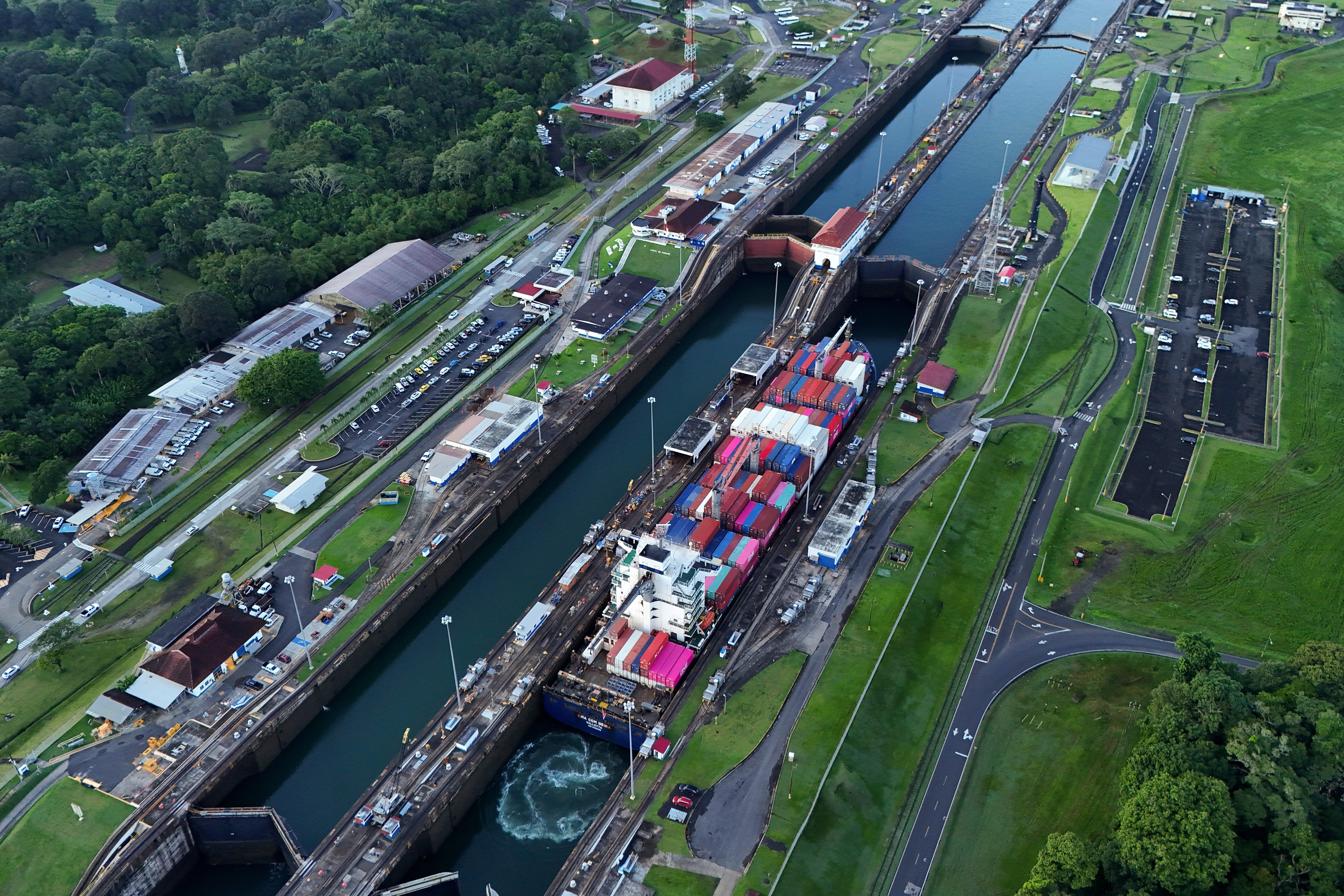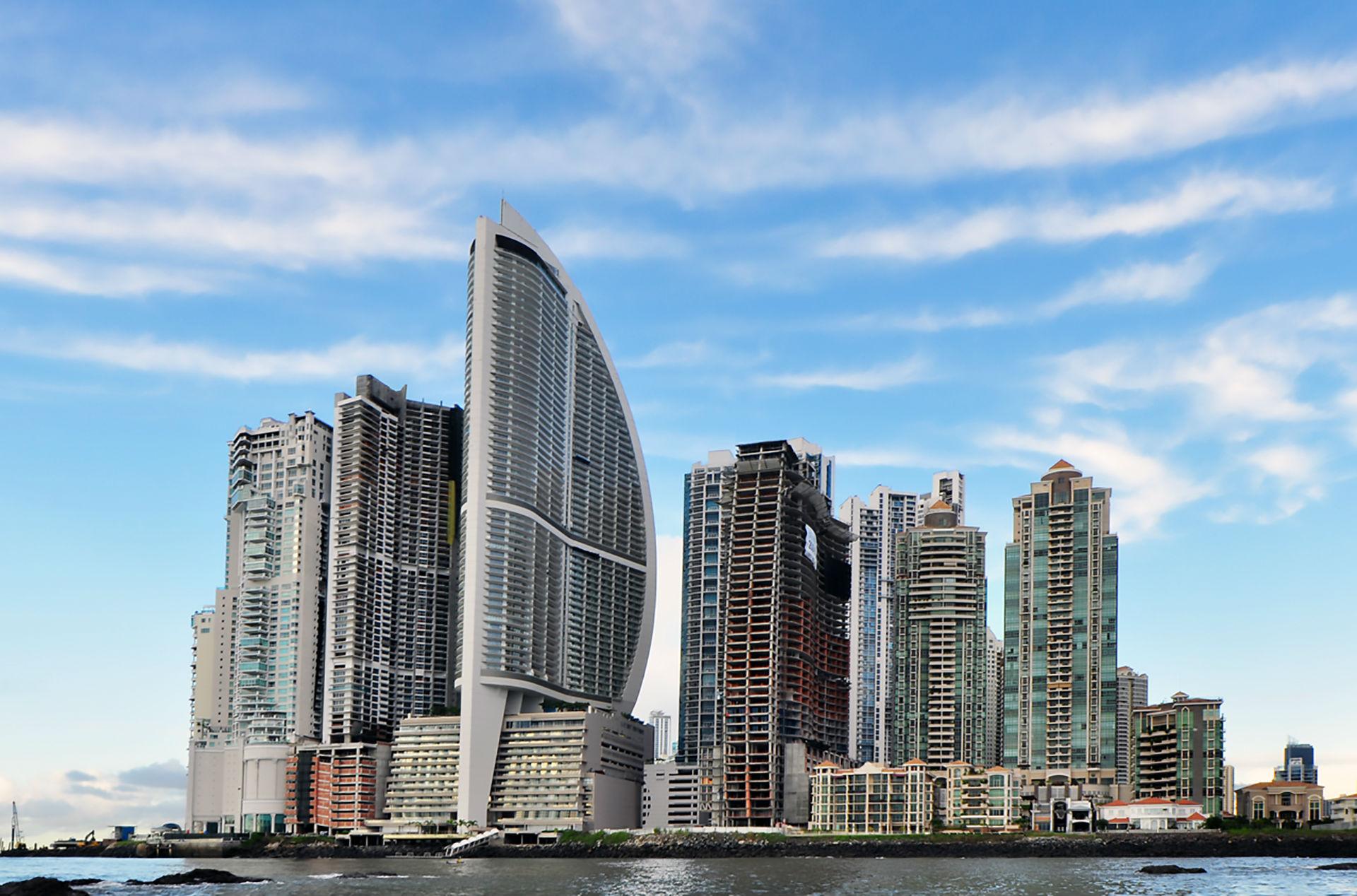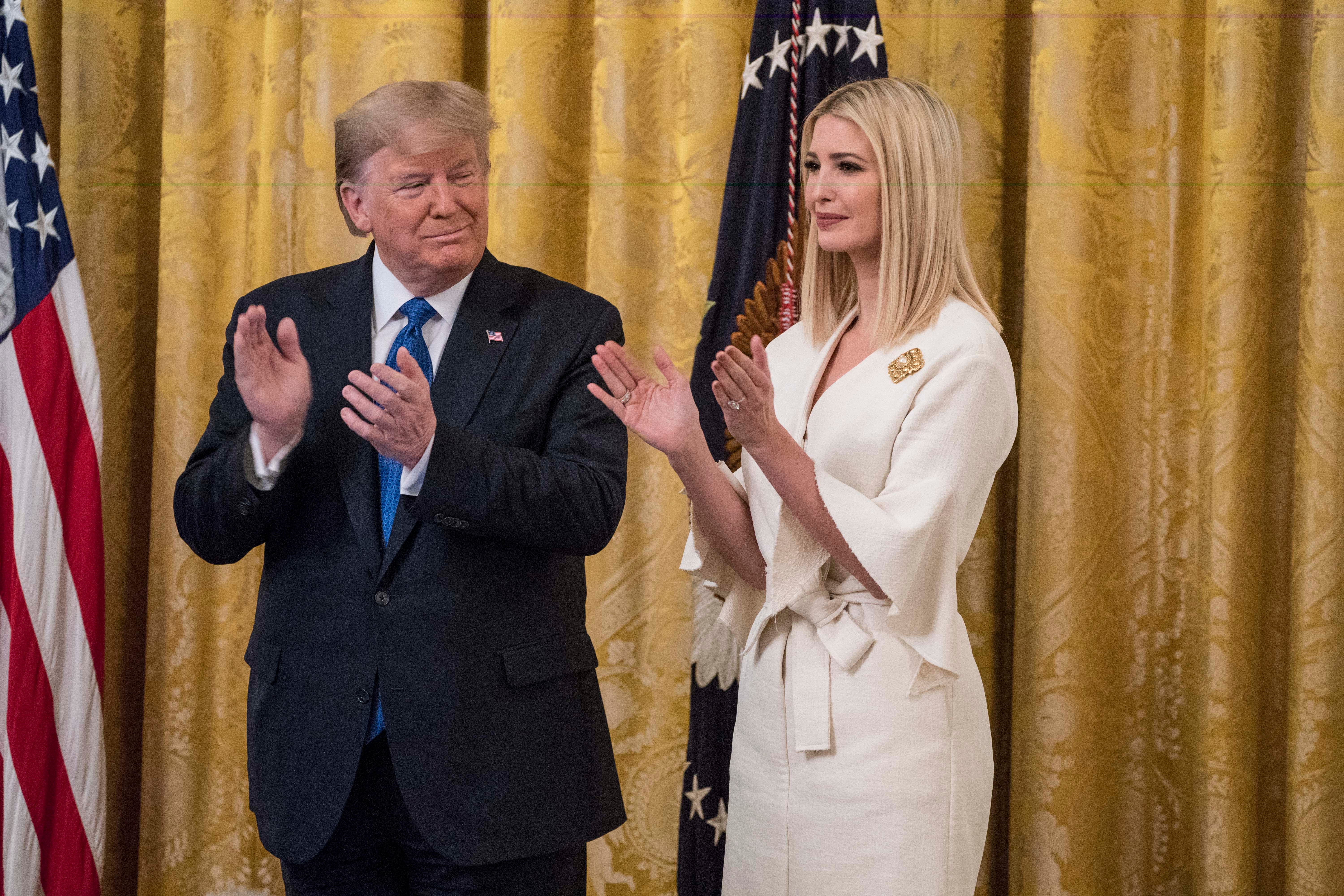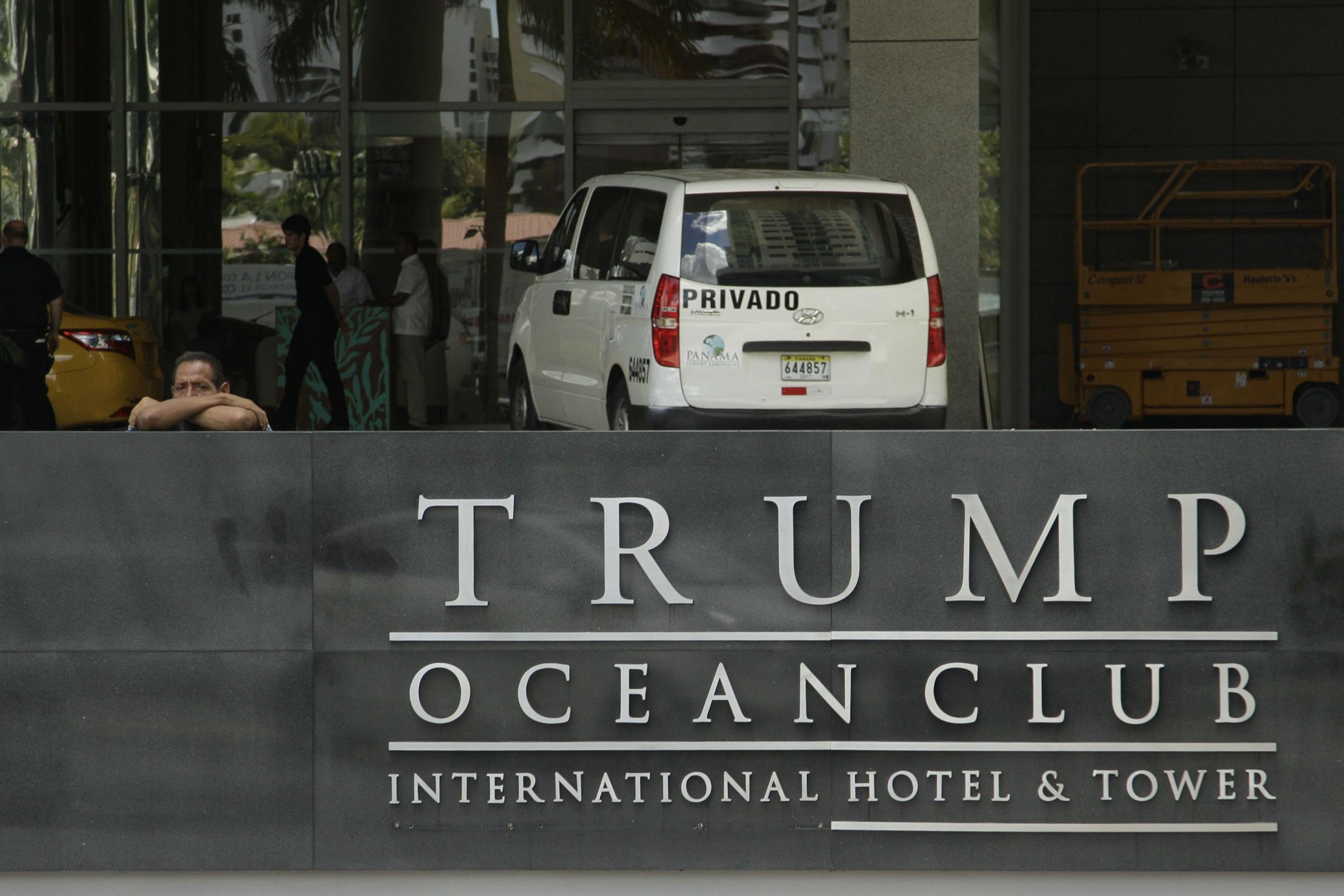Donald Trump rattled North American diplomatic relations over the weekend with a threat to retake the Panama Canal, two and a half decades after the US transferred control of the vital global trade route to Panama.
In a series of posts on Truth Social, the president-elect accused the country of “ripping off” the US.
“Our Navy and Commerce have been treated in a very unfair and injudicious way,” Trump wrote. “The fees being charged by Panama are ridiculous, especially knowing the extraordinary generosity that has been bestowed to Panama by the US.”
Panamanian officials have pushed back against the threats, with President José Raúl Mulino saying in a Sunday statement that “every square meter of the Panama Canal and its adjacent zone belongs to Panama, and will continue to do so.”
The dispute over the canal is just the latest chapter of Trump drama in Panama.
Before and throughout his first term in the White House, a high-profile Trump hotel project in the country was a seemingly unending source of scandal and financial problems, ranging from a partner’s bankruptcy to money-laundering allegations to long-running legal battles.

In 2011, Trump and his business partners cut the ribbon on the Trump Ocean Club International Hotel and Tower, a 70-story, sail-shaped skyscraper that loomed large over Panama City and the Trump Organization itself.
The tower, which was first conceived way back in 2005, was Trump’s first international hotel venture and one of the tallest buildings in Latin America.
Trump capital didn’t go towards building the development itself, but the tower used the Trump name for branding, and companies controlled by the Trump Organization would manage the property, which contained a casino, hotel rooms and condos.
Even in the early days, the project seemed doomed, with one of Trump’s partners defaulting on debts soon after the tower opened and later filing for bankruptcy.
Ricardo Martinelli, president of Panama at the time of the opening, has since been convicted of money-laundering and has taken shelter inside the Nicaraguan embassy in Panama.
Subsequent investigations from news outlets alleged that one of the main brokers who sold units in the tower, Alexandre Ventura Nogueira, met repeatedly with Ivanka Trump while working on the project and did business with organized crime figures who may have used the properties for money-laundering, earning the tower the nickname “Narco-a-Lago,” a play on Trump’s Mar-a-Lago estate in Florida.
“The Trump Organization was not the owner, developer or seller of the Trump Ocean Club Panama project,” the Trump Organization said after the money-laundering allegations. “Because of its limited role, the company was not responsible for the financing of the project and had no involvement in the sale of units or the retention of any real estate brokers.”
The company told Reuters it “never had any contractual relationship or significant dealings” with Nogueira.

Nogueira fled Panama on bail while awaiting trial on unrelated fraud charges, and spoke to reporters as a fugitive in disguise in Europe.
At one point, as Ocean Club condo owners objected to the Trump team’s management practices and sought to fire the company, accusing them of overspending and taking excessive bonuses. Trump responded by suing, demanding $75m for wrongful termination.

The litigation was settled in 2016 – the same year Trump was elected president – but the drama around the tower didn’t end there.
“President Trump removed himself from his multi-billion-dollar real estate empire to run for office and forewent his government salary, becoming the first President to actually lose net worth while serving in the White House,” Karoline Leavitt, a spokesperson for the Trump-Vance transition team, told The Independent in a statement. “Unlike most politicians, President Trump didn’t get into politics for profit – he’s fighting because he loves the people of this country and wants to make America great again.”
In 2017, businessman Orestes Fintiklis bought hundreds of units inside the hotel-condo portion of the building for between $20m and $25m from one of the tower’s bankrupt developers, making him the controlling owner. He helped lead owners of units in the building in calls to sever their relationship with the Trump companies managing the development.
The Trump Organization accused Fintiklis of violating the terms of his original acquisition deals for the units, saying he agreed not to interfere in the Trump team’s management of the hotel.
By the following year, as Fintiklis sought to assume what he argued was majority ownership of the tower, shoving matches broke out between his employees and remaining Trump Organization staff. In one incident, the Trump team allegedly barred the new owners from entering a room with computer servers and CCTV monitors, prompting the owners group to allegedly shut off power to the room.
Fintiklis accused the Trump companies of shredding documents and hastily building walls to lock the new owners out of certain areas, while the Trump Organization accused the Fintiklis group of “thug-like, mob-style tactics.”
In a 2018 suit filed in New York federal court and amended multiple times since, Fintiklis and his company Ithaca Capital Partners accused Trump companies managing the Panama tower of “intentionally evading taxes” related to their role overseeing the development, allegedly saddling the new owners with millions in liability when an alleged 2018 audit uncovered the shortfall, the suit claimed.
Later filings accused the Trump managers of understating employee salaries to reduce potential social security tax payments and painting the building’s finances in a “false light” before Fintiklis was bought in, which the company denied and called “completely false.”
“To the extent any taxes were to be withheld,” the Trump Organization told The New York Times in 2019, they were the responsibility of the new owners, the company said. The Trump Organization added it “did not evade any taxes.”

The complaints also accused the Trump companies of mismanaging the tower and letting it fall into disrepair, as wings of the skyscraper sat “virtually empty.”
At the time, the Trump Organization said the fight had “nothing to do with the president of the United States.”
A Panamanian court eventually ruled in Fintiklis’s favor in the ownership dispute, and a workman pried the silver Trump name from the sign outside the Panama tower in 2018.
Ithaca appears to have dropped its suit against the Trump companies in 2021, according to federal court records viewed by The Independent.
The Independent has contacted Ithaca and the Trump Organization for comment.
The tower is now a JW Marriott, but the Trump name is clearly not leaving the headlines in Panama any time soon.







